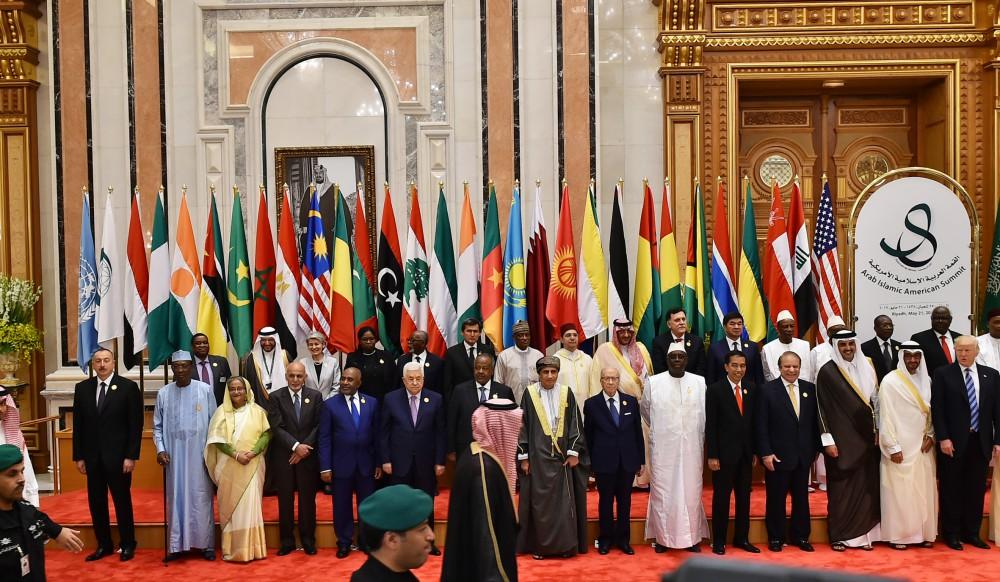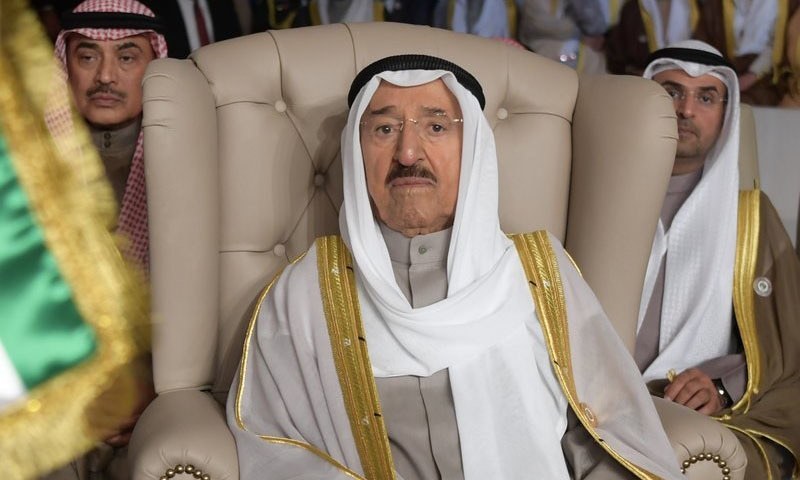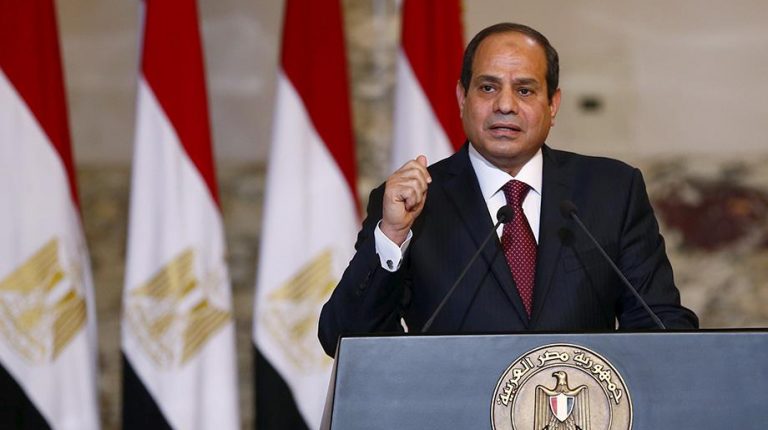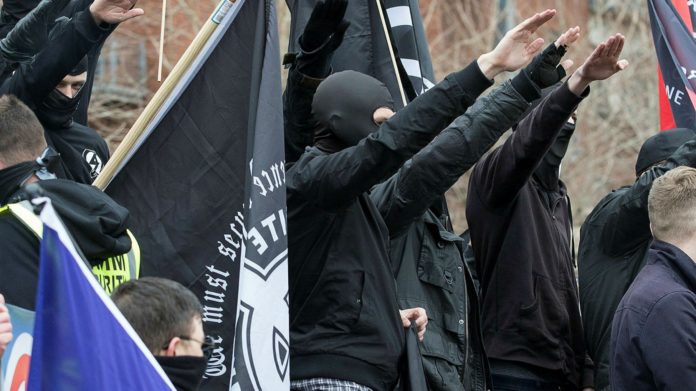Extremism and terrorism are the two sides of the same coin. Before appreciating the role that soft power can play in combating intellectual extremism and terrorism, one needs to look at the definitions of these two words. As per Counter Extremism Strategy of UK published in 2015, extremism is defined as the vocal or active opposition to the fundamental values, including democracy, the rule of law, individual liberty, and respect and tolerance for different faiths and beliefs.1 While, the U.S. Code of Federal Regulations defines terrorism as the unlawful use of force and violence against persons or property to intimidate or coerce a government, the civilian population, or any segment thereof, in furtherance of political or social objectives.2 However, when it comes to intellectual extremism or intellectual terrorism there is no unanimous definition. Various authors, scholars, legal systems and governments use different illustrations for this purpose. One may attempt to define intellectual terrorism as expressions of rational thought aimed against one or more countries, institutions, or people, with intent to intimidate or seriously alter political, economic, or social structures of a country.
Although, intellectual terrorism does not include killing of people, it is more dangerous than military terrorism. It aims at imposing a specific opinion or doctrine, hence, confiscating the other’s freedom of opinion and scattering and promoting delusional ideals and disallowing its resistance.3 Intellectual extremism and terrorism have been exposing people to knowledge and perspectives that help them form a world view which, according to them, is the only correct view. Thus, one may also define intellectual terrorism as a selfish attempt by the intellectuals of the country to subjugate the minds of oppressed and deprived people with terror in the country so as to gain certain political and economic gains.
The most dangerous form of intellectual terrorism is associated with the connivance of the intellectuals with the political leaders and government agencies to distort the fact of situation in the formulation, propagation and implementation of government policies. For instance, hurting the sentiments of a religious community under the light of right to freedom of expression. While claiming to be a freedom of speech, showing solidarity with those who promote such kind of propaganda does not promote freedom of speech, rather promotes intolerance, violence and intellectual terrorism that hurt innocent people all over the world.4
The European Court of Human Rights in one case of E.S. v. Austria5 found no violation of Article 10, Freedom of Expression, and upheld the applicant’s conviction for disparaging religious doctrines. Moreover, the Court also held that the applicant’s statement went beyond the permissible limits of freedom of expression and it could have endangered and jeopardized peace and order in the country, had it not been stopped. It further added that it was not compatible with Article 10 to pack incriminating statements into the wrapping of an otherwise acceptable expression of opinion.
Intellectual extremism or terrorism is a phenomenon that the world has been witnessing for last many centuries. The most prominent example of intellectual terrorism is what the inspection courts and the church did in Europe in the Middle Ages, as they used to execute the ones opposing their opinions and the scientist Galileo had to suffer their wrath. Even in the Islamic history there existed groups practicing intellectual terrorism, such as the isolationists who used to judge their opponents and the most prominent victim was Imam Ahmad Bin Hanbal.6
Similarly, to promote Islam phobic or anti-Semitic views based on the superiority of one racial and religious group to the detriment of all others is intellectual extremism. Such extremists often argue that Western civilization faces an impending race war, or that a multicultural society will lead to white genocide. Another example is of Blood Honour, a neo-Nazi group founded in, and run from, the UK that organises extreme right-wing music events. Followers use music and magazines to promote a violent white supremacist ideology rooted in Nazism. The lyrics of a number of bands that appear at Blood & Honour events openly encourage violence towards minorities, and several individuals associated with Blood & Honour have been convicted of violent offences.7
No doubt, hard power has been one of the most prevalent forces in international relations, but as the years have passed the world has seen many declines, and decline of hard power is one of them. Many scholars have come to the surface who propagate the emphasis of soft power. Soft power is the ability to attract and attraction leads to acquiescence. If a state’s own values become widely shared among other states, it will easily influence others. This has been termed as soft power. For example, the United States influenced many other states to accept the value of free markets and free trade. This was due to national will, diplomatic skill, and popular support for the government, international influence and power of ideas.8
As the concept of soft power illustrates, dominance is not the only way to exert power to influence others. The core principles of reciprocity and identity can also work. Soft power is the ability to influence others without using the threat of military force. It includes everything other than use of naked force, such as, educational reform, leadership, rehabilitation programs, diplomacy, cultural, reputation, economics and financial aid, tourism, media, public information campaign good governance, human development, sports and literature, etc.

During the Arab Islamic American Summit in Riyadh in 2017, King Abdullah II of Jordan laid great emphasis on the importance of values in the struggle to prevent and counter terrorism and violent extremism, including, mutual respect, compassion and acceptance. According to him education was essential, because intolerance and ignorance aided terrorism. In the same Summit, the President of Indonesia, Joko Widodo, also stressed upon the importance of soft power in countering and preventing terrorism and violent extremism. He was of the view that history teaches that weapons are not enough and there was need to balance hard power and soft power approaches.9 Even the last U.S. President, Barack Obama, had been instructing to mainly employ soft power elements instead of armed forces in the fight against terrorism. For this purpose, a document titled the Quadrennial Diplomacy and Development Review was produced as the first institutional step in 2010. This document draws a framework on how to shape foreign policy on soft power and aims to create a consistent capacity for civilians against terrorist threats. According to Barack Obama, Guns do not defeat ideologies, they defeated with ideas a more attractive and compelling vision10 Turkey had also adopted soft power elements as fundamental political instruments to fight against PKK without alienating its Kurdish citizens in any way. Similarly, Saudi Arabia had resorted to the use of soft power to counter intellectual extremism and terrorism in their country after the use of military power in 1979 and 1995 terrorist attacks, respectively.
As the present trend is to resort to the use of soft power in order to counter intellectual extremism and terrorism, it is time to explore the different modes through which soft power may be exercised and may play its role effectively.
Use of Media
One of the main instruments of soft power can be media. For instance, what the governments of those Islamic countries greatly suffered by intellectual extremism and terrorism can do is they can persuade and urge the top Islamic and other religious clerics to come on electronic media for the purposes of undermining the terrorist causes by declaring those acts as religious and cultural taboos. They can promote a vision of the rebellion as not only a challenge to writ of the country but also as a war against Islam itself. The lectures and talk shows of religious scholars highlighting the core principles of Islam could be useful in creating harmony between the various sects as well as in promoting interfaith peace and understanding which consequently can counter the intellectual extremism and terrorism. However, for this purpose, there is a urgent need that the religious scholars be integrated into modern technological platforms and online social networking sites. Moreover, to improve public confidence in them, religious programmes and talk shows are required to be organised in which public queries about religious issues could be addressed. De-radicalisation seminars and lectures on social platforms such as YouTube and Facebook can also indispensable.
Engaging Community Leaders and the Youth
Selected community leaders could play a very important role in the process of relationship between the local community and the government institutions. However, increasing age difference between the young people and the older generation of leaders, poor communication and understanding level have affected productive and fruitful working with younger community members to prevent them from radicalising. Instead of focusing on selected representatives and structures, a multi-level strategy that targets and builds grassroots trust, transparency and engagement as well as cultivating leadership roles and government liaison is far more likely to succeed. The good it brings is that it will mitigate the sense of deprivation for those intellectuals whose quest is for recognition and power. Moreover, the youth can play a pivotal role in this regard. The platforms such as the World Youth Forum (WYF) need to be organized and further encouraged to address these issues by engaging the youth at a global level.
Proper handling of Economic Issues
Another important reason of intellectual extremism and terrorism is the prevailing economic deprivation, poverty, injustice, and inequality in the society. This leads to developing a specific mindset by the Government itself which believes that violence is the only resort of meeting their financial goals, thus, they try to snatch the basic living through force and violent acts. Economic deprivation makes the work of extremist organisations very easy to recruit a frustrated young mind that can be easily used for violence. The most effective measure against the ideological appeal of terrorist organizations and intellectual extremist elements is socio-economic development, equal distribution of resources, and attempts of curtailing sense of deprivation and in this respect, involvement of international assistance may also be sought.
Uplifting Cultural Values
Culture is one of the most important ingredients of soft power as it is what grabs the attention of others and has the most impact on an individual’s life choices. Their views, desires, thinking, values can be shaped up by culture. Culture provides people with a sense of belonging and purpose, it is a bond which ties people together and thereby can cause most purposeful change. Different countries having various cultures have many common things like hospitality, folk music, poetry, life style and peace. Culture in politics is to place culture within state foreign policy as the expression of a national interest, which contributes to the ratification of the national character, belief systems, strategic cultures and national identity.11
For instance, since its inception, the Republic of Azerbaijan has been pursuing holistic policies of multiculturalism which guarantees spirits of globalization, peace and harmony. The Azerbaijan successful multicultural model is the continuation of peaceful coexistence between ethnic, linguistic and religious groups in its country characterized by nonviolence, respect of human and cultural diversity. Through successful model of multiculturalism it has revolutionized the concepts of humanity, prosperity, peaceful co-existence, guarantees of minorities and respect of ethnicity. Its diversified but integrated multiculturalism enables and encourages people, countries and organizations around the globe to take concrete actions to support humanity diversity, dialogue and mutual understanding among different cultures and nations by raising awareness on the strategic importance of multiculturalism.
When the concept of soft power is proposed in any radical society, the key to bringing change in that particular society is through its cultural values that further shapes its foreign policy. No society of the world is violent or extremist in nature. It is actually how it is interpreted and misunderstood under different circumstances. A cultural uplift, therefore, can be a great tool to combat intellectual extremism and terrorism.

Linkages through Diplomacy
Diplomacy is one of the strongest tools in the arsenal of soft power. Today, the strategy to win against intellectual extremism and terrorism is winning hearts and minds, and the sole reliance on hard power is not enough. The Emir of Kuwait, as well as the Prime Minister of Malaysia, have been reminding all of the importance of winning hearts and minds and developing counter-narratives to violent extremism.12 A smart public diplomacy requires a need for understanding the role of civil society, credibility, and self-criticism in generating soft power. There is a dire need to link soft power with other modes of power using diplomacy as a medium of linkage.13 Diplomacy has been the part of world politics where NGOs and government organisations and other non-state actors project their message through such mediums to achieve real foreign policy objectives.
Promotion of Education, Sports and Literature
At the domestic level, there is need to promote the culture of education and literacy in the country by reforming its educational curriculum and policies. In this age of information, many young people struggle with the development of critical skills required to sort and evaluate it. Cognitive and emotional skills need to be embedded in the curricula of schools and universities to help equip young people to evaluate and argue against the interpretations of religion, history, politics and identity that are the bread and butter of terrorist recruitment narratives.14
In discussions with Heads of State during the Arab Islamic American Summit, the Director-General presented the leading role of UNESCO for using “soft power” to prevent violent extremism. She stressed education, skills for jobs and values for intercultural dialogue, as well as the protection of humanity’s cultural heritage and promoting diversity as strengths for all to share.15
It is necessary that the governments should initiate programs to educate the public about intellectual extremism and terrorism, as well as provide alternatives to radicalization among young men. Projects from athletic competitions, to lectures, writing contests, and public information campaigns are likely to have a significant impact on public perceptions of extremism and terrorism.
The Union of News Agencies (UNA) of the member States of the Organization of Islamic Cooperation, in partnership with Distance Learning and Training Company Group (DLT), aims for conducting courses at Jeddah that will focus mainly on ways to improve intellectual security, promote moderation and fight the money laundering that helps to finance the spread of extremism. According to the DLT CEO they also have set up a work plan for the UNA training center, taking into consideration its role in fighting intellectual terrorism and its financing sources, as well as its supporters. He is of the view that the Muslim nations in particular need to protect their culture and identity against cultural invasions and that their courses would focus on practical ways to help protect individuals and families from intellectual deviation.16 Certain authors have even recommended the subject of soft power to be a field of study for future, because it has not yet gained the due attention of researchers.17

Steps towards Rehabilitation
The centerpiece of the rehabilitation strategy is a comprehensive counselling program designed to re-educate violent extremists and sympathizers and to encourage extremists to renounce terrorist ideologies.18 Here, the role of the Islamic and religious clerics is again very crucial to counter corrupted understandings and misinterpretations of correct doctrine. It will help to win the hearts and minds of people voluntarily and eliminating the causes of intellectual extremism and terrorism. President Al-Sisi of Egypt has also been stressing the importance of “tolerance, respect and the right to difference”; as humanitarian values to confront violent extremism and terrorism.19
Strengthening of Institutions
Strong institutions play a vital role in projecting soft power. It would not be out of place to say that without strong institutions, soft power cannot be instrumental in countering intellectual or violent extremism or implementing counter violent extremism policies. There is a need of realization among policy makers that soft power would be equally helpful to get rid of this menace of intellectual extremism and terrorism. The impact of soft power will be enhanced considerably when the country uses culture, heritage and its quality of domestic values to ensure rule of law domestically and to build a credible image in the eyes of the world. However, soft power should be institutionalised as institutions can play a significant role in a war-damaged or war-torn areas and influence can be laid upon without using hard power. For example, we see after the World War II that the US in the form of Marshall Plan loaned billions of dollars to the Western Europe to strengthen their hold against Russia (the Soviet Union).
Conclusion
This writing recommends the use of soft power strategy as an alternative to hard power when combating intellectual extremism and terrorism, and highlights the different measures through which soft power may be exercised for this purpose. The Government of Pakistan, and particularly, the new setup, has shown its willingness and readiness for the promotion and development of soft power in the country. It has also taken some initiatives in dealing with matters if extremism and terrorism with the use of soft power, including lessening the sense of injustice and dissatisfaction in the society, the construction of houses and schools in the war affected areas, providing people of such areas with the basic necessities of life like food, shelter, and clothing, inviting the deprived sector who are forced to join terrorist groups to table talks, merging the tribal areas which have primarily been the hub of terrorist activities into the provincial government, and giving them representation at the legislative level.
Pakistan has a rich cultural heritage, and if it focuses on investing in human resource, promoting good governance, strengthening its economy, rule of law and institutions, and paying attention on softer fields of culture, literature, sports, tourism, foreign assistance, education, public and cultural diplomacy, there is a great likelihood that it will completely uproot the menace of intellectual extremism and terrorism from its society in times to come and help to create internal harmony and its international recognition for peace.
It can be said that in the rise and fall of nations, the perfect mix of hard and soft power in accordance with nation’s limitation and opportunities will define its position in maintaining peaceful co-existence at the international and regional level. The real strength of the soft power lies in its right execution and implementation. The success of the nation is not dependent only on economic or military power any more but equally important is a country’s status in the softer fields of culture, literature, sports, and tourism that can play the important role in countering intellectual extremism and terrorism and the determination of the country’s status in the international arena of politics.
References
Dr. Ghazi Ismail Rababa’a The Global Terrorism between Dialectic Concept and Opposite Means, International Journal of Humanities and Social Science, Vol. 2 No. 24 [Special Issue December 2012]
Hwajung Kim, Cultural Diplomacy as the Means of Soft Power in an Information Age, Institute for Cultural Diplomacy (December 2011)
Nye, Joseph S., Jr., Bound to Lead: The Changing Nature of American Power, Basic Books, 1990
Internet Sources
Arab News, New courses in Jeddah aim to counter extremism, http://www.arabnews.com/node/1364426/saudi-arabia
Aslam Abdullah, Intellectual Terrorism, Islam City, February 3, 2006, available at http://www.islamicity.org/2796/intellectual-terrorism
E.S. v. Austria (Application No. 38450/12), Chamber’s Judgment, by European Court of Human Rights, ECHR 360 (2018), dated 25.10.2018.
Christopher Boucek, Saudi Arabia’s “Soft”; Counterterrorism Strategy: Prevention, Rehabilitation, and Aftercare, Carnegie Endowment for International Peace, September 22, 2008, available at http://carnegieendowment.org/2008/09/22/saudi-arabia-s-soft-counterterrorism-strategy-prevention-rehabilitation-and-aftercare-pub-22155
Colonel Abdulhadi Alshehri, Soft Power as an alternative to Hard Power in Counterterrorism in Saudi Arabia, USAWC Strategy Research Project, U.S. Army War College, 2010, available at http://www.dtic.mil/dtic/tr/fulltext/u2/a522010.pdf
Gallarotti, Giulio M. and Al Filali, Isam Yahia, The Soft Power of Saudi Arabia (2013), Division II Faculty Publications, available at https://pdfs.semanticscholar.org/d1de/f5dfbc6d9d66972dfece4f4372979afd610c.pdf
Michele Grossman, Combatting terrorism: soft power approaches, The Strategist, Australian Strategic Policy Institute, July 20, 2015, available at https://www.aspistrategist.org.au/combatting-terrorism-soft-power-approaches/
Policy paper on UK Counter-Extremism Strategy published on 19 October 2015. This document sets out the UK government’s strategy to counter extremism in all its forms. It was presented to the Parliament by the Secretary of State for the Home Department, available athttps://www.gov.uk/government/publications/counter-extremism-strategy
UNESCO Office News, May 22, 2017, available at http://www.unesco.org/new/en/member-states/single-view/news/director_general_speaks_of_soft_power_to_leaders_at_ar-1
United States Code 22 USC § 2656f(d)(2) available at https://www.law.cornell.edu/uscode/text/22/2656f-
Workshop Report on The Role of Diplomacy and Soft Power in Combatting Terrorism – Concepts, Fighting Methods and Case Studies, published by Center for Strategic Research, Republic of Turkey, Ministry of Foreign Affairs, available at http://www.coedat.nato.int/publication/workshop_reports/04-Diplomacy_Soft_Power_Report.pdf
End Notes
1 Policy paper on UK Counter-Extremism Strategy published on 19 October 2015. This document sets out the UK government’s strategy to counter extremism in all its forms. It was presented to the Parliament by the Secretary of State for the Home Department, available athttps://www.gov.uk/government/publications/counter-extremism-strategy
2 United States Code 22 USC § 2656f(d)(2) available athttps://www.law.cornell.edu/uscode/text/22/2656f-
3 Dr. Ghazi Ismail Rababa’a, The Global Terrorism between Dialectic Concept and Opposite Means, International Journal of Humanities and Social Science, Vol. 2 No. 24 [Special Issue December 2012]
4 Aslam Abdullah, Intellectual Terrorism, Islam City, February 3, 2006, available at http://www.islamicity.org/2796/intellectual-terrorism
5 E.S. v. Austria (Application No. 38450/12), Chamber’s Judgment, by European Court of Human Rights, ECHR 360 (2018), dated 25.10.2018.
6 Dr. Ghazi Ismail Rababa’a, International Journal of Humanities and Social Science, supra
7 Policy paper on UK Counter-Extremism Strategy, supra
8 Nye, Joseph S., Jr., Bound to Lead: The Changing Nature of American Power, Basic Books, 1990
9 See News by the UNESCO Office, May 22, 2017, available at http://www.unesco.org/new/en/member-states/
single view/news/director_general_speaks_of_soft_power_to_leaders_at_ar-1
10 See Workshop Report on The Role of Diplomacy and Soft Power in Combatting Terrorism – Concepts, Fighting Methods and Case Studies, published by Center for Strategic Research, Republic of Turkey, Ministry of Foreign Affairs, available at http://www.coedat.nato.int/publication/workshop_reports/04-Diplomacy_Soft_Power_Report.pdf
11 Hwajung Kim, Cultural Diplomacy as the Means of Soft Power in an Information Age, Institute for Cultural Diplomacy (December 2011)
12 See News by the UNESCO Office, May 22, 2017, available at http://www.unesco.org/new/en/member-states/single view/news/director_general_speaks_of_soft_power_to_leaders_at_ar-1/
13 Gallarotti, Giulio M. and Al Filali, Isam Yahia, The Soft Power of Saudi Arabia (2013), Division II Faculty Publications, available at https://pdfs.semanticscholar.org/d1de/f5dfbc6d9d66972dfece4f4372979afd610c.pdf
14 Michele Grossman, Combatting terrorism: soft power approaches, The Strategist, Australian Strategic Policy Institute, July 20, 2015, available at https://www.aspistrategist.org.au/combatting-terrorism-soft-power-approaches
15 See News by the UNESCO Office, May 22, 2017, available at http://www.unesco.org/new/en/member-states/single-view/news/director_general_speaks_of_soft_power_to_leaders_at_ar-1
16 See Arab News, New courses in Jeddah aim to counter extremism, http://www.arabnews.com/node/1364426/saudi-arabia
17 Colonel Abdulhadi Alshehri, Soft Power as an alternative to Hard Power in Counterterrorism in Saudi Arabia, USAWC Strategy Research Project, U.S. Army War College, 2010, available at http://www.dtic.mil/dtic/tr/fulltext/u2/a522010.pdf
18 Christopher Boucek, Saudi Arabia’s Soft; Counterterrorism Strategy: Prevention, Rehabilitation, and Aftercare, Carnegie Endowment for International Peace, September 22, 2008, available at http://carnegieendowment.org/2008/09/22/saudi-arabia-s-soft-counterterrorism-strategy-prevention-rehabilitation-and-aftercare-pub-22155
19 See News by the UNESCO Office, May 22, 2017, available at http://www.unesco.org/new/en/member-states/single-view/news/director_general_speaks_of_soft_power_to_leaders_at_ar-1/




